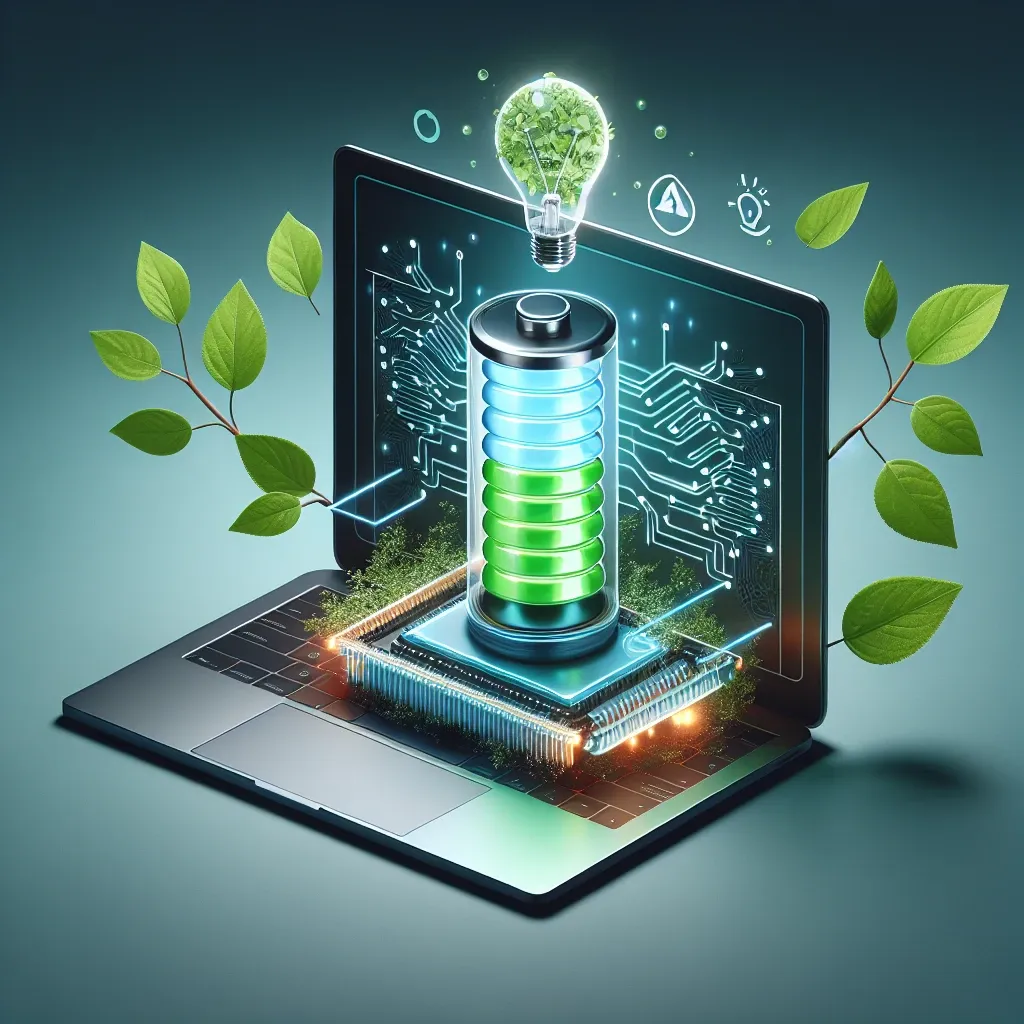Introduction
The rapid advancement of technology has led to the emergence of hybrid AI inference on-device, a paradigm shift that has profound implications for battery life in laptops. As users demand more from their devices, understanding this technology becomes essential for maximizing battery efficiency without sacrificing performance.
What is Hybrid AI Inference?
Hybrid AI inference combines the strengths of both edge and cloud computing. It allows devices to process AI tasks locally while leveraging cloud resources when necessary. This approach not only enhances performance but also optimizes energy consumption, making it particularly relevant for laptops where battery life is a critical concern.
The Role of On-Device Processing
On-device processing refers to the ability of a laptop to perform computations independently, without relying heavily on remote servers. This capability is vital for several reasons:
- Reduced Latency: Local processing minimizes the time taken to execute commands, providing a faster user experience.
- Privacy and Security: Keeping data on the device reduces the risk of exposure during transmission.
- Battery Conservation: By handling tasks locally, laptops can save energy that would otherwise be consumed by constant data communication with the cloud.
The Impact on Battery Life
Battery life is one of the most significant concerns for laptop users. Here’s how hybrid AI inference on-device technology affects battery longevity:
1. Efficiency of Resource Utilization
Hybrid AI systems can intelligently allocate tasks between local and cloud resources, ensuring that power-intensive processes are managed effectively. For instance, routine tasks like voice recognition can be handled on-device, while complex computations can be offloaded to the cloud during periods of high power availability.
2. Dynamic Power Management
AI-driven dynamic power management allows laptops to adjust their performance based on usage patterns. For example, if a user is engaged in light tasks such as document editing, the system can minimize power consumption by reducing CPU frequency and shutting down unnecessary components.
3. Adaptive Performance Scaling
Hybrid systems utilize machine learning algorithms to learn user behavior and optimize performance accordingly. This adaptability means that when a user is running demanding applications, the device can draw more power, but during idle times, it can scale down operations to extend battery life.
Historical Context and Evolution
Historically, laptop manufacturers focused on maximizing processing power, often at the expense of battery life. However, with the advent of mobile computing and the increasing reliance on laptops for everyday tasks, there has been a significant shift. Manufacturers are now prioritizing energy efficiency, leading to innovations like hybrid AI inference.
The Journey Toward Hybrid AI
From the early days of laptops with basic processing capabilities to the current generation of devices equipped with sophisticated AI, the evolution has been remarkable. The integration of hybrid AI inference marks a pivotal moment, where energy efficiency aligns with technological advancement.
Future Predictions
Looking ahead, it is evident that hybrid AI inference on-device will become standard in laptops. As battery technology continues to improve, coupled with enhancements in AI algorithms, users can expect:
- Longer Battery Life: Future laptops will likely last longer on a single charge due to more efficient power usage.
- Enhanced User Experiences: With AI personalizing performance, users will experience smoother interactions and improved multitasking capabilities.
- Greater Sustainability: As energy efficiency becomes a priority, laptops will contribute to sustainability efforts by reducing overall energy consumption.
Pros and Cons of Hybrid AI Inference
Pros
- Improved Battery Life: Efficient energy use leads to longer-lasting batteries.
- Enhanced Performance: Local processing speeds up tasks.
- Security Benefits: Reduced data transmission improves security.
Cons
- Increased Complexity: Managing hybrid systems can be complex for developers.
- Potential for Overheating: Intensive local processing may generate heat, impacting hardware longevity.
Real-World Examples
Several laptop manufacturers have already begun to harness the power of hybrid AI inference:
- Apple: The M1 chip features on-device machine learning capabilities that optimize battery usage while enhancing performance.
- Dell: The XPS series integrates AI to manage battery life intelligently based on user habits.
Conclusion
Hybrid AI inference on-device is not just a technological advancement; it represents a significant shift in how laptops manage performance and battery life. As this technology matures, users can anticipate a future where laptops deliver optimal performance without compromising on battery efficiency. This balance is essential for today’s mobile workforce, paving the way for smarter, more sustainable computing.

